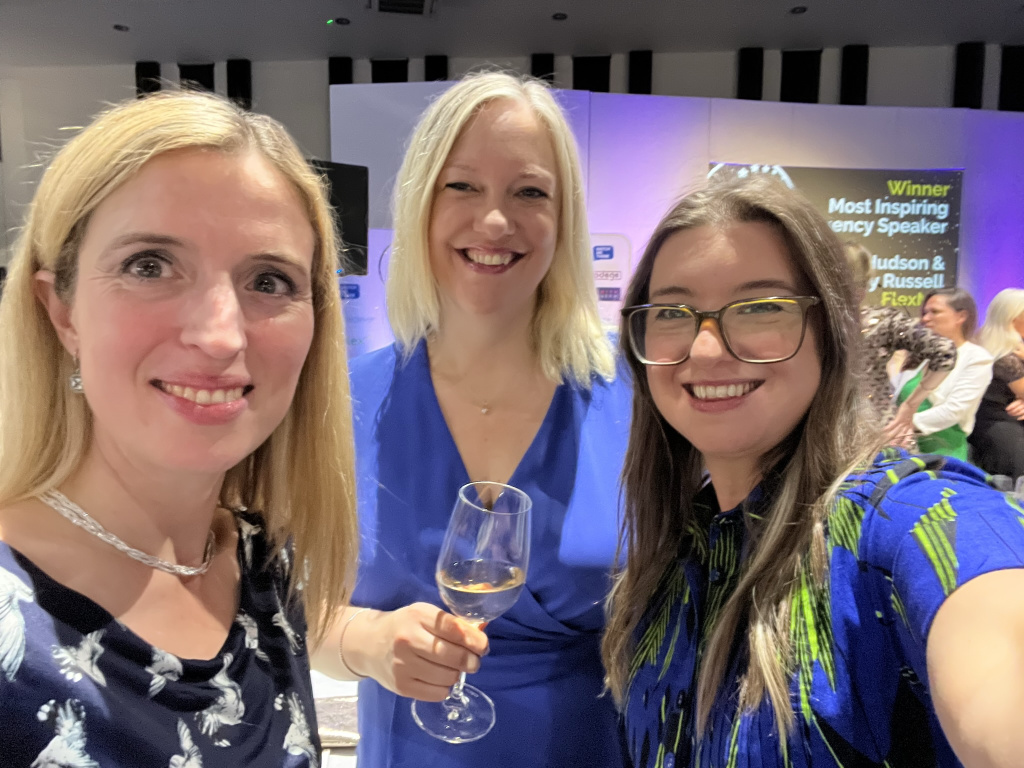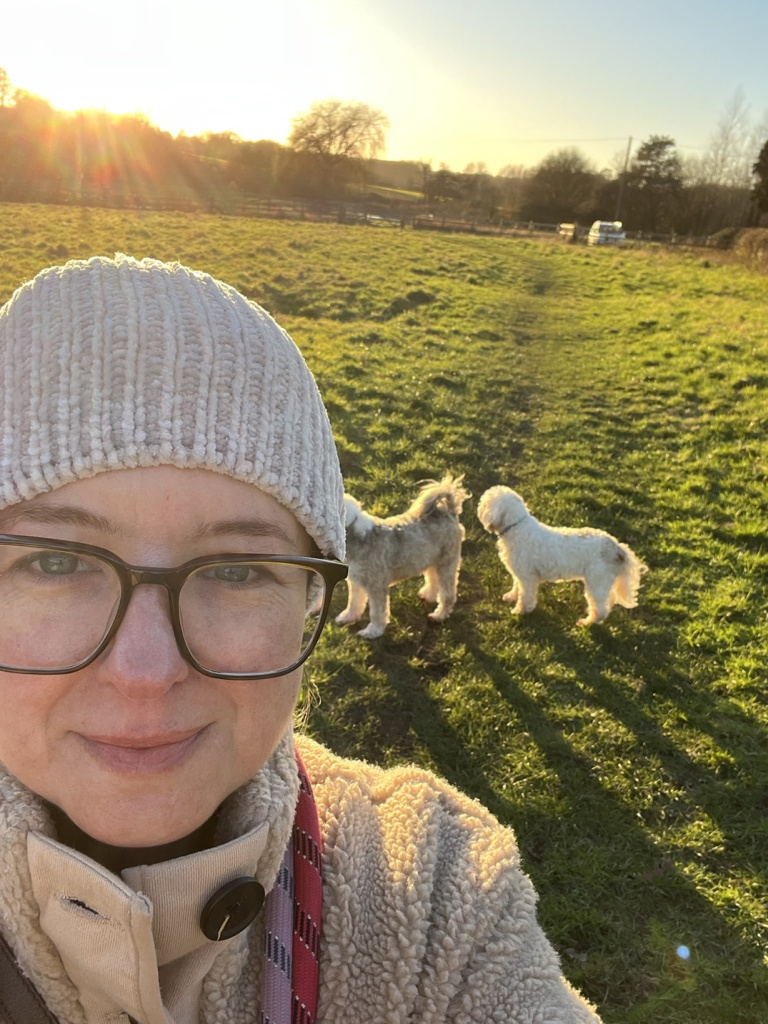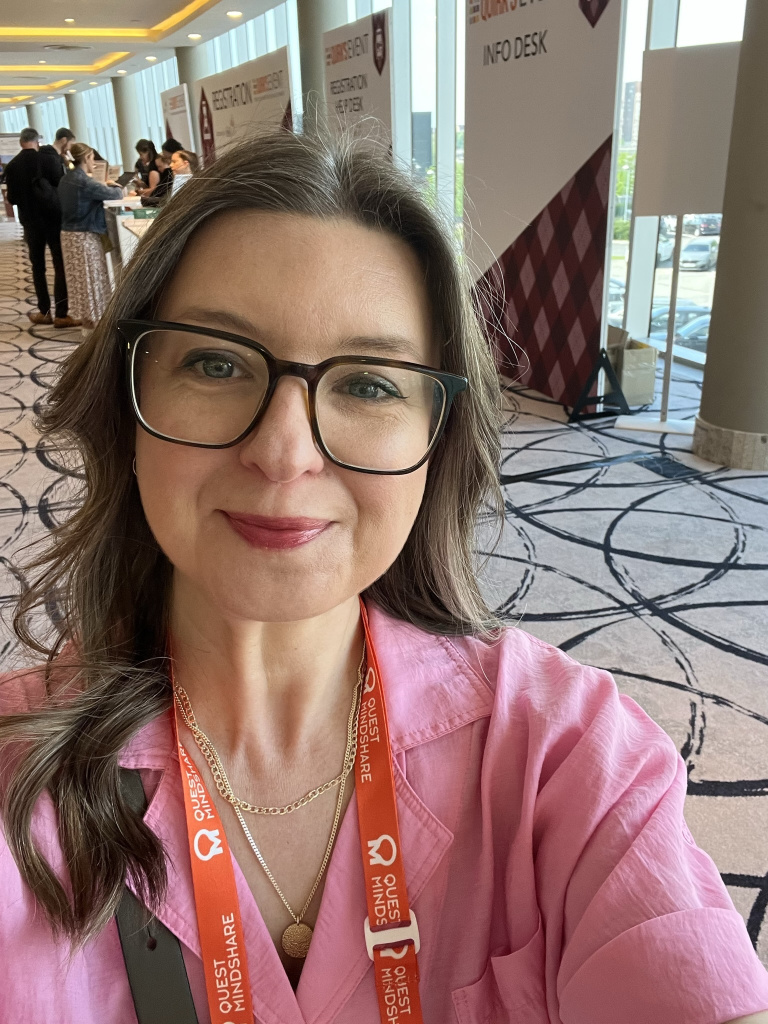How did you get there? Julia Joskey

Great to hear from Julia Joskey who started off in clientside analyst and insight roles, before joining the Insight Management Academy as an adviser to insight leaders. She is now the founder of Data Translators, working with data, research and insight teams to build trust with decision makers, drive business value and communicate with clarity.
So, how did you get into the industry, and take us through how you got to this point?
The short answer is that for the first 16 years of my career I worked in data, analysis and insight roles in Financial Services, and for the last 9 years I’ve been an adviser to insight leaders, sharing best practice approaches and delivering workshops and coaching.
Many people say they fell into their career but my CV tells quite a linear story, on the surface at least. I studied a one-of-a-kind degree called Mathematical Business Analysis – a mix of maths, stats, operational research, IT, accounting and business modules. Looking back now it seems so perfect for a career in data and analysis but I can’t claim to have had this level of foresight at the time!
Funnily enough, my first job when I graduated was in market research! A temporary contract with the local council gathering information about small businesses. It was just me and my clipboard going out to engineering firms and hairdressers asking them a bunch of questions and then coming back to the office to write it all up.
My first analyst job, and the one that really put me on my career path, came a few months later at HFC Bank in Birmingham. I was very lucky to have a brilliant boss in that job. He was a young ambitious American, brought over to the UK business to ‘do clever things with data’. He understood that getting anything done was all about influence with senior decision makers. He set about building relationships with all the directors, and he put me – a 21 year old graduate analyst – in front of them. My job was to explain the results of my analysis in a way that they could understand and would convince them to act. That’s what I learned at HFC Bank; how to communicate technical stuff to non-technical people.
From there, I went to Capital One, learned how to code SQL. I worked on the database design for a radical new idea – online banking – ha!
After that I landed my first job with ‘insight’ in the title – a relatively new term at the time. At HomeServe we didn’t just analyse data, our aim was to understand customers. And to do that we used many different sources of data – not just the internal databases, but also Market Research, Competitor Intelligence and so on. We established a customer panel. We made sure the customer was at the heart of decision-making.
Then I joined Barclays. I was very fortunate to work in an insight team that was very high performing and well regarded. And I now understand that we were working in ways that are still considered to be best practice in this field.
I joined the Insight Management Academy in 2016 to do a job that couldn’t be more different to my analyst roles, but somehow felt very familiar! The IMA is a membership organisation for corporate insight teams. For the first time I could see how the experience I had could be applied to develop best practice approaches that could help others doing similar roles. I enjoyed the mix of research, writing and creation of materials with the face-to-face delivery of talks at IMA Forums, and workshops and coaching for insight teams. For me, it was a virtuous circle of learning. We shared the best practice approaches drawn from the experience of dozens of clientside members, and I always learned so much from talking to insight leaders and their teams about what worked for them.
This year I founded my own business, Data Translators. I work with data, research and insight teams to develop an approach to build trust with decision makers, drive business value and communicate with clarity. I’ve put all of my own experience, together with everything I’ve learned from working with over 100 insight teams, into my step-by-step approach, The GODIVA Model. I offer advice, workshops and coaching.
I am also a proud member of the AURA team, helping to grow the membership and deliver great events for almost 200 clientside research teams.

Why should anyone consider a career in market research, data and insights?
There is a huge and growing need for what we do. Over the last couple of decades organisations have invested heavily in data, technologies and talent. Despite this investment, many commercial leaders are frustrated that they’re not seeing the returns. Most organisations haven’t suddenly become data-driven. That means the data they’ve invested in (and the tech and the talent) isn’t consistently driving better decisions and more value for the business.
The missing puzzle piece here is data translation. Businesses desperately need people who can understand the strategic objectives, draw on different data sources, make the connections, tell the story and then advise commercial leaders on what they should do differently. As the tech, including gen AI, continues to evolve and the amount of data that businesses have continues to expand, I see huge opportunity for anyone who can develop a data translation skill set.

Career paths are rarely without challenges. Can you share an honest moment from your career when things didn’t go quite according to plan, but the lessons remain with you to this day?
I have a talk that I give to groups of university students or people at the start of their career. It’s called ‘6 things I wish I knew at the start of my data career’. I start off by describing my career path – maths degree, analyst roles, insight adviser – and it all looks very linear. I even visualise it with a neat horizontal timeline. But then I start to add in the things that have happened along the way and suddenly my straight-line career starts to look far more squiggly! (Thanks to Helen Tupper and Sarah Ellis at Amazing If for that perfect descriptor!)
One example I can give is when I decided that I’d had enough of a career in data and wanted to be a Maths teacher instead. So, I took a big risk. I left my (secure, well paid) job, and started a PGCE. Well, within 3 months I had decided that I absolutely did not want to be a teacher! Rather than see it through to the end, I quit the course. It was one of the hardest decisions I’ve ever had to make. Everything was going well, but I just knew it wasn’t going to be the right job for me. Let me tell you, it does not feel good to quit. It doesn’t feel like the right thing to do. It’s hard work explaining yourself to people. But instinctively I knew I had to go with my gut, and I felt huge relief when I had made the decision, and that’s usually the sign that you did the right thing.

What two things should junior researchers focus on as they progress in their careers?
Firstly, the single most important thing to do is really understand the business you’re working in; what the strategic objectives are, how it’s structured to deliver products and services, who the customers are, how it makes money. If you’re working on the agency side then you absolutely have to do this for every client, every project. Developing this broad commercial understanding provides you with a solid foundation for the work that you do. It’s also essential for building valuable relationships with decision makers, and without these, your work is unlikely to make a jot a difference. I believe that this is so foundational that I’ve made it the first step of The GODIVA Model, my step-by-step approach for data and insight teams to drive business value.
At the other end of The GODIVA Model, the final 3 steps are all about communication. This is the second thing that I would encourage junior researchers to focus on. It’s not the last mile, it’s every bit as important as the analysis or research work itself. Planning communication needs to start at the very beginning of a project, by clearly articulating the business question and the context surrounding it. Then, when you have the answers, you can create a simple narrative structure to tell the story. We must be bold in our communications and have the confidence to strip away the detail and focus on the key messages. The same applies when we create visuals or charts. Far too many slide decks are cluttered and messy, charts and dashboards are over-complicated. Our audience is busy senior decision makers. We need to get to the point, quickly.
Do you have any advice for our sector?
Curiosity is our superpower. To be a good analyst or researcher, it’s essential to be curious, so it’s a natural talent for most of us. I believe we need to lean into this now, at a time when new data technologies are being presented as the answer for how we get more value from data. Our organisations need our curiosity and critical thinking skills to evaluate how to deploy these technologies in ways that align with business objectives. To this end, I believe that organisations need to invest in data translation capability, in the same way that they have invested in data and tech.
And do you have anyone who has helped your career so far that you’d like to acknowledge and say thanks or give a shout out to?
I have had some wonderful managers and colleagues over the years who have patiently taught me the building blocks of effective analysis and insight work. I would like to mention Richard Wade (who I worked with at HFC Bank), Nick Matthews (at Capital One), Patrick O’Donnell (at HomeServe) and Mark Graham (at Barclays).
When I made the leap from clientside to the Insight Management Academy, it was the founders, Steve Wills and Sally Webb, together with CEO James Wycherley, who really believed in me. I thank them for being open to my ideas and allowing the space for me to play such an active role in building a unique membership organisation.
And finally, the colleagues I have known and worked with the longest, at Barclays and then at the IMA, Lisa Dutton and Emma Jones. There is so much I could thank these two incredible women for but mainly I thank them for their enduring friendship.